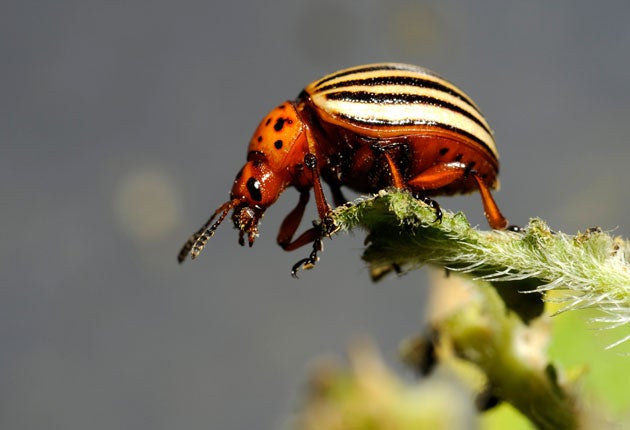National Insect Week: The power of bugs
Scientists warn that the UK's dramatic loss of expertise in the field poses a threat to our environment and health

Your support helps us to tell the story
From reproductive rights to climate change to Big Tech, The Independent is on the ground when the story is developing. Whether it's investigating the financials of Elon Musk's pro-Trump PAC or producing our latest documentary, 'The A Word', which shines a light on the American women fighting for reproductive rights, we know how important it is to parse out the facts from the messaging.
At such a critical moment in US history, we need reporters on the ground. Your donation allows us to keep sending journalists to speak to both sides of the story.
The Independent is trusted by Americans across the entire political spectrum. And unlike many other quality news outlets, we choose not to lock Americans out of our reporting and analysis with paywalls. We believe quality journalism should be available to everyone, paid for by those who can afford it.
Your support makes all the difference.They are among the planet's smallest creatures, yet they have the power to change the world. Insects can be man's greatest friends, pollinating our crops, and also our greatest enemy, spreading disease and killing millions worldwide. Now scientists are warning that Britain's once world-beating pool of expertise on the subject is draining away, leaving us vulnerable to new and ever more dangerous insect pests.
The Royal Entomological Society, the oldest in the world in its field, warned this weekend that a decline in the UK's scientific study of insects poses a substantial threat to our ecosystems, food security and even our health. The warning comes as National Insect Week begins tomorrow.
Once a world leader in the field, in the 1970s the UK produced 70 to 80 graduate entomologists annually. Now it produces a handful each year. Imperial College London is the last place teaching the subject, and that at postgraduate level only.
Experts bemoan the passing of a time when entomology boasted champions such as Charles Darwin and the novelist/lepidopterist Vladimir Nabokov, who, in turn, inspired younger generations. They blame the school system for not capitalising on children's early interest in bugs and what they say is fashionable disapproval of collecting insects, once a rite of passage for millions of schoolchildren.
Simon Leather, of Imperial College, said: "Insects are the major animal life form – 75 per cent of described animal species are insects. Nobody knows very much about insects and invertebrates, yet they are incredibly important: they help run all the ecosystems, they provide food for lots of animals, they live in the soil, turning lots of things over. Yet much of the research money goes into mammals, where a new species is rarely discovered."
British scientists are increasingly worried that, as global temperatures rise, a wave of new, possibly disease-carrying insects will invade Britain and experts will not know enough to control them. "What could happen is that climate change could allow the establishment of the diseases that they transmit and the insects may survive through mild winters," Dr Leather said.
Join our commenting forum
Join thought-provoking conversations, follow other Independent readers and see their replies
Comments